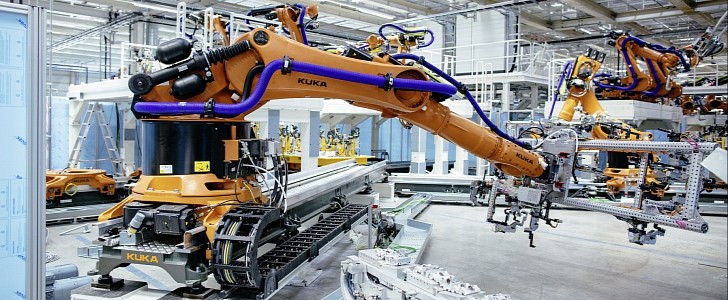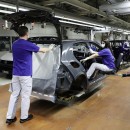You can feel in the air an intense sense of responsibility for the environment, a sign that climate change is a serious matter and we should all contribute to that.
The car industry, one of the largest polluters in the world, is showing its efforts to reduce it, as passenger cars produced approximately three billion metric tons of carbon dioxide emissions worldwide in 2020. The emissions produced by passenger cars have been steadily rising over the past two decades, increasing from 2.2 billion metric tons in 2000 to a peak of 3.2 billion metric tons nowadays.
In addition to CO2 emissions, cars can pollute even before going out on the street, and also after the end of their life. Materials like steel, rubber, glass, plastics, paints, toxic battery acids, and other products may stay in the environment, affecting the natural cycle of life on Earth. Fortunately, the automotive industry and many other areas are focusing their attention on this issue, taking visible actions.
The Volkswagen Group recently published its first Responsible Raw Materials Report, a first step in considering human rights and environmental risks in particularly exposed supply chains. When it has to rely on other manufacturers, the carmaker is hampered when it comes to transparency and the implementation of standards.
In this new report, Volkswagen shows his strength to reveal for the first time the list of smelters in its tin, tantalum, tungsten and gold supply chains as well as the countries of origin. The document covers 16 high-risk raw materials, including battery materials such as lithium and cobalt.
Concrete sustainability measures have been taken since 2021 by the German manufacturer, when it began to opt for leather and natural rubber suppliers. In the same year, Volkswagen joined the pledge for a moratorium on deep sea mining, got involved in the Global Platform for Sustainable Natural Rubber (GPSNR) and supported the development of Reporting Requirements for companies in rubber supply chains.
In 2022, the carmaker aims to reach the battery field, in order to promote responsible sourcing through credible certification schemes. As a demonstration of facts, Volkswagen joined the Initiative for Responsible Mining Assurance (IRMA) in March 2022 and agreed to gradually implement the IRMA-standards in its own battery supply chains.
"We can only overcome global challenges and succeed in protecting the environment as well as human rights, if we work together with all relevant stakeholders and our business partners along the supply chain, " said Murat Aksel, Volkswagen Group's Board Member for Purchasing.
In addition to CO2 emissions, cars can pollute even before going out on the street, and also after the end of their life. Materials like steel, rubber, glass, plastics, paints, toxic battery acids, and other products may stay in the environment, affecting the natural cycle of life on Earth. Fortunately, the automotive industry and many other areas are focusing their attention on this issue, taking visible actions.
The Volkswagen Group recently published its first Responsible Raw Materials Report, a first step in considering human rights and environmental risks in particularly exposed supply chains. When it has to rely on other manufacturers, the carmaker is hampered when it comes to transparency and the implementation of standards.
In this new report, Volkswagen shows his strength to reveal for the first time the list of smelters in its tin, tantalum, tungsten and gold supply chains as well as the countries of origin. The document covers 16 high-risk raw materials, including battery materials such as lithium and cobalt.
Concrete sustainability measures have been taken since 2021 by the German manufacturer, when it began to opt for leather and natural rubber suppliers. In the same year, Volkswagen joined the pledge for a moratorium on deep sea mining, got involved in the Global Platform for Sustainable Natural Rubber (GPSNR) and supported the development of Reporting Requirements for companies in rubber supply chains.
In 2022, the carmaker aims to reach the battery field, in order to promote responsible sourcing through credible certification schemes. As a demonstration of facts, Volkswagen joined the Initiative for Responsible Mining Assurance (IRMA) in March 2022 and agreed to gradually implement the IRMA-standards in its own battery supply chains.
"We can only overcome global challenges and succeed in protecting the environment as well as human rights, if we work together with all relevant stakeholders and our business partners along the supply chain, " said Murat Aksel, Volkswagen Group's Board Member for Purchasing.






